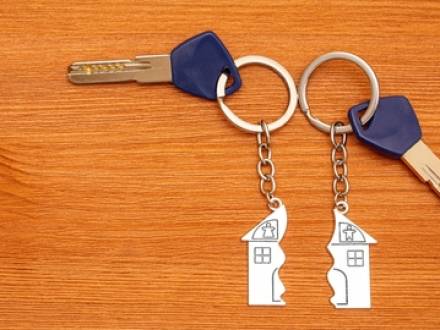What Does "Fair" Really Mean Under Equitable Distribution?
 Nine states in the U.S. still operate under community property laws, which divide all marital property equally, regardless of any extenuating circumstances. Equitable distribution states, on the other hand, divide marital assets fairly, but not necessarily 50/50. How do family court judges distinguish "equal" from "fair," and what criteria do they use to ensure a "fair" distribution of marital assets?
Nine states in the U.S. still operate under community property laws, which divide all marital property equally, regardless of any extenuating circumstances. Equitable distribution states, on the other hand, divide marital assets fairly, but not necessarily 50/50. How do family court judges distinguish "equal" from "fair," and what criteria do they use to ensure a "fair" distribution of marital assets?
Illinois courts consider a range of factors, including the length of the marriage, each spouse’s contributions, and their future earning potential, when making these determinations. Understanding what equitable distribution (750 ILCS 5/503) really means is essential as you prepare for the financial reality of divorce. An experienced Geneva, IL marital asset division attorney can guide you through the process and ensure that your best interests are being considered.
What Is Equitable Distribution?
Equitable distribution is a legal principle used in most states in the U.S. The goal of equitable distribution is to divide any assets and debts acquired during the marriage between the couple fairly, but not necessarily equally. Equitable distribution does not mean "equal," and a 50/50 split is rarely ever the goal. Keep in mind that equitable distribution laws only apply when a divorcing couple is unable to agree on a marital settlement agreement on their own.
Courts strive to ensure that one spouse is never left unfairly disadvantaged (financially speaking) after the divorce, while taking into consideration not only financial contributions, but non-financial contributions as well. So, in the case of equitable distribution, "fairness" takes into consideration all contributions to the marriage by both spouses as well as the future needs of each spouse.
What Factors Do Illinois Courts Consider When Determining an Equitable Distribution of Marital Assets and Debts?
One of the primary factors used by Illinois courts when determining an equitable distribution of marital assets and debts is the length of the marriage. First, the length of the marriage strengthens the presumption that assets acquired during the marriage are marital property.
A longer marriage typically means more intertwined finances, and is also considered in the context of the spouses’ current and future financial circumstances. Additionally, the following factors are considered by judges when dividing marital assets and debts in a fair (equitable) manner:
- Each spouse’s financial (income earned) and non-financial (homemaking, child-rearing, or supporting a spouse’s education or career) contributions.
- How each spouse contributed to the acquisition, preservation, or appreciation of marital assets
- Whether either spouse deliberately dissipated assets in a manner that did not benefit the marriage (gambling, drugs, financially supporting an infidelity)
- The current economic circumstances of each spouse (property, assets, and liabilities)
- The future income and needs of each spouse (vocational skills and employability)
- The age of each spouse
- The health of each spouse
- The need to allow each spouse to maintain his or her current standard of living.
- The financial needs of any minor children of the marriage
- Whether any valid prenuptial or postnuptial agreements exist
How Does Equitable Distribution Affect Complex or High-Asset Divorces?
Complex or high-asset divorces may include business ownership, a professional practice, cryptocurrency, investments, and pensions. Hidden assets may also be a consideration. All of these issues require forensic accounting to ensure an accurate valuation of high-net-worth assets and a fair division of marital assets.
Professional practices and business ownership can be particularly complex, necessitating a comprehensive financial analysis of all business records. In short, equitable distribution might mean that if one spouse has significant separate assets, the other spouse would be awarded a larger share of the marital assets in the interest of fairness. Or, if one spouse sacrificed his or her own career advancement for the benefit of the other, that spouse might be entitled to a larger share of the marital assets.
Contact a Kane County, IL Divorce Lawyer
Equitable distribution is about fairness, not numbers, so if you are facing divorce in Illinois, do not assume "equitable" means a 50/50 split. When you have a Geneva, IL family law attorney from Loire Krajniak Law, LLC as your advocate, you can rest easy, knowing your future is being carefully looked after during the divorce. Call 630-448-2406 to schedule your free consultation.
 22 Crissey Ave, Suite 100, Geneva, IL 60134
22 Crissey Ave, Suite 100, Geneva, IL 60134 630-448-2406
630-448-2406




